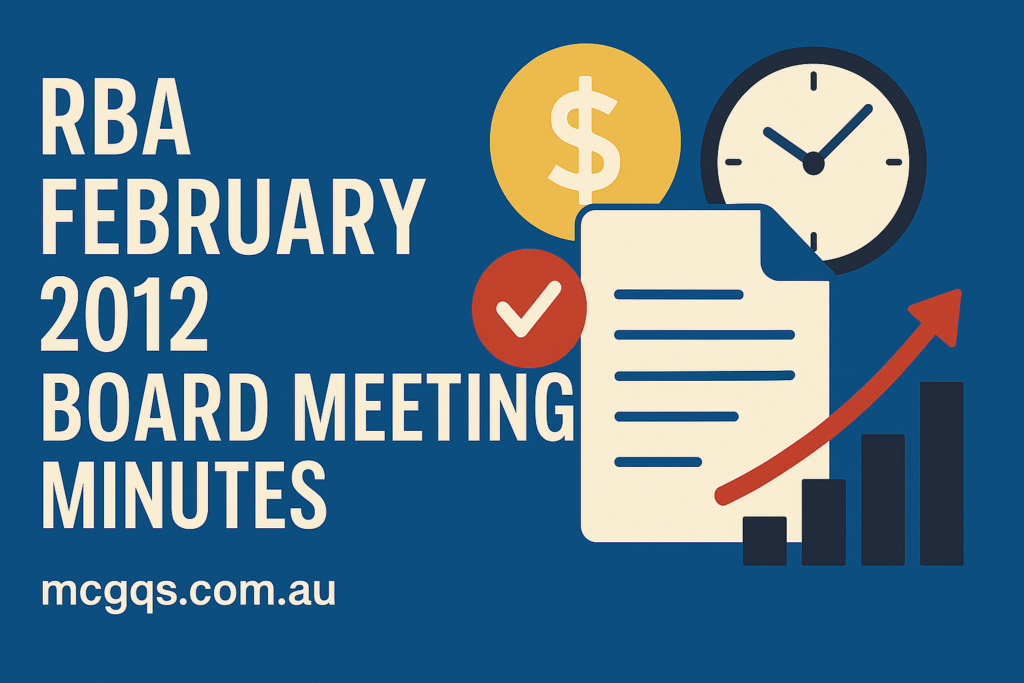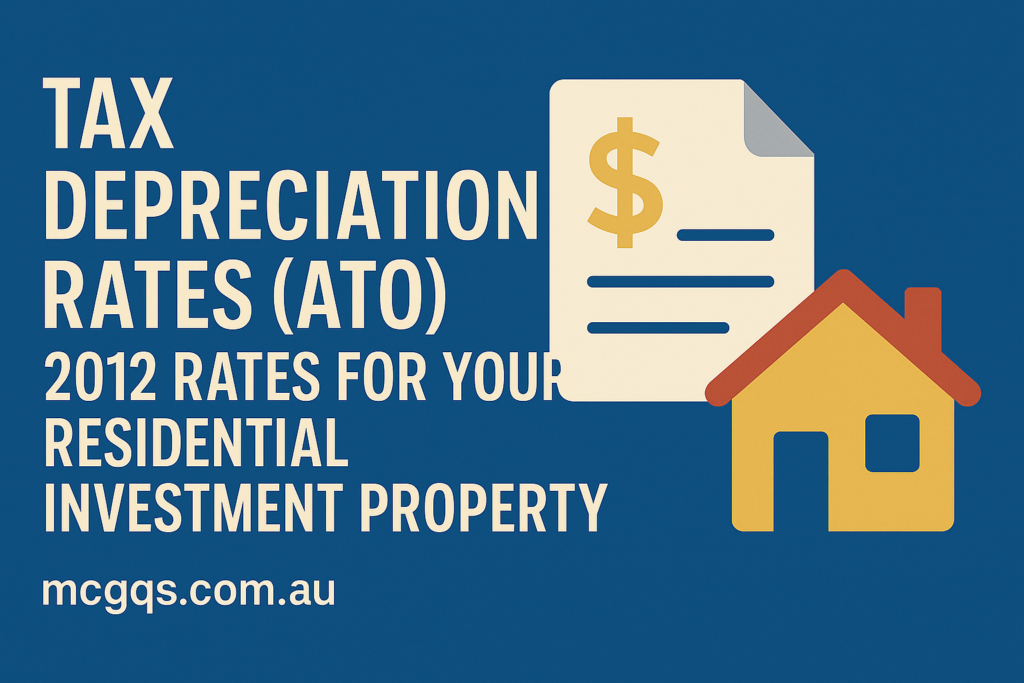HIA voice concerns over the decline in residential construction activity
In a one page bulletin produced last week, the HIA called for interest rate cuts and supply side reforms to arrest the on-going decline in residential construction activity in Australia. The HIA represents the construction industry and by proxy has a vested interest in construction activity; however there is growing evidence of supply side problems with concerns…
Read MoreThe Biggest Mistakes Landlords Make
1. Not treating the investment property like a business If your investment property is occupied by a family member you’re helping out, then your investment goals might be a little different. However, for most investors they’re in the business of owning a property to make money. There are often times when investors make decisions based…
Read MoreRBA February 2012 Board Meeting Minutes
Much to the surprise of most economists, the RBA kept the cash rate steady in February. Information available since the December meeting confirmed that economic conditions in Europe were weakening late last year, with significant downside risks. In line with this, most forecasters have lowered their forecasts for world GDP growth this year to a below trend…
Read MoreRBA Commentary on the Investment Boom in the Resources Sector
In his speech today to the Committee for Economic Development of Australia, RBA Deputy Governor Philip Lowe gave some interesting commentary on recent developments within the Australian economy. Specifically interesting were his comments regarding the indirect effects of the investment boom in the resource sector:
Read MoreTax Depreciation Rates (ATO) – 2012 Rates for your residential investment property
In previous posts we’ve looked at how effective lives are calculated, how depreciation rates are calculated and the difference between the diminishing value and prime cost methods. As we often get questions about the specific effective lives for residential property, we’ve decided to post the current effective lives here. These effective lives are current at…
Read MoreMCG on Property Observer – Calculating Effective lives for Tax Depreciation
Check out an article on how the ATO tax commissioner determines effective lives featured on Property Observer today, by our Tax Depreciation Director Mike Mortlock – http://bit.ly/wi6s88
Read MoreATO Tax Depreciation Methods – Diminishing Value and Prime Cost
The ATO allows two very different methods of calculating property tax depreciation deductions, the Diminishing Value Method and the Prime Cost Method. Most investors choose the Diminishing Value Method as it will return the greatest amount of deductions over the first few years of ownership. However it’s worth discussing with your accountant, as maximising your…
Read MoreThe Cappuccino Price Index – A Year in Review 2011
For the uninitiated, the Cappuccino Price Index (CPI) monitors the price of espresso coffee in Australia. In their own words “Cutting through the noise of oil prices, inflationary trends, exchange rates, and The All Ords we talk about what really matters – the price of the cup of coffee.” It’s an interesting niche way to…
Read MoreNew Property vs Old Property – A comparison of tax depreciation deductions for the property investor
There are many considerations when purchasing an investment property. Property investors will need to consider their personal strategy, capital growth potential, rental yield, area demographics, rental demand, maintenance costs and much more. One important piece of the puzzle is property tax depreciation. It isn’t normally one of the first considerations of the property investor however…
Read MoreHousing State of Supply Report 2011
Yesterday saw the release of the National Housing Supply Councils 2011 State of Supply report. The National Housing Supply Council was established in 2008 by the Treasurer and the Minister for Housing to monitor housing demand, supply and affordability in Australia, and to highlight current and potential gaps between housing supply and demand from households.…
Read More









